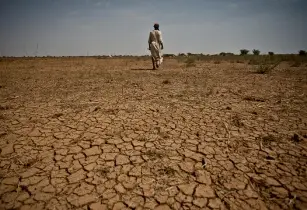More than 60mn people have been affected by El Niño and many more are highly vulnerable to La Niñas likely knock-on effect, a meeting of UN agencies at the FAO headquarters revealed
In wake of the devastating effects of El Niño, United Nations leaders called for combined efforts by governments and the international community to prevent human suffering, strengthen resilience and safeguard livelihoods.
More than 60mn people worldwide, about 40mn in East and Southern Africa alone, are projected to be food insecure due to the impact of the El Niño climate event. The Horn of Africa and Southern Africa have been hit the hardest in the continent.
The heads of the three Rome-based UN agencies, FAO, IFAD and WFP, urged greater preparedness to deal with the possible occurrence later this year of a La Niña climate event, which could lead to above average rainfall and flooding in areas affected by El Niño-related drought.
The UN estimates that without the necessary action, the number of people affected by the combined impacts of the El Niño/La Niña could top 100mn.
Participants at the meeting noted that almost US$4bn is required to meet the humanitarian demands of El Niño-affected countries and that almost 80 per cent of this is for food security and agricultural needs.
The meeting announced that the FAO, IFAD and WFP are redoubling efforts to mitigate the negative impacts and capitalise on positive opportunities of a likely La Niña phenomenon by acting decisively to prepare for above-average rainfall in some areas and potential drought conditions in others.
Participants noted that in southern Africa a three-month ‘window of opportunity’ exists before the 2016/17 planting season begins and that adequate interventions, including agricultural input distributions are urgently needed to avoid the dependence of millions of rural families on humanitarian assistance programmes well into 2018.





